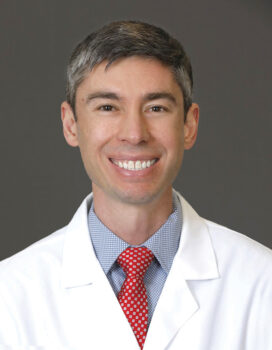
Jason Michaels, M.D.
“Hey doc, I’ve had a bump on my nose for two months now that won’t heal. No matter what I do, it does not go away. I am very careful with the area, washing it daily, and sometimes I put Neosporin on it, but there it stays.”
As a board-certified dermatologist, specializing in the early detection and treatment of skin cancer, I hear stories like this every day. Oftentimes, skin cancer can be subtle, such as a spot that seems like a small sore that will not heal. It might be slightly painful and bleed when bumped or rubbed in the shower. Rarely, skin cancer can also have no symptoms at all, with slight change in color or size signifying its change from normal to cancerous.
Skin cancer is the most common type of cancer, affecting one in five Americans. Every day in the United States, 8,500 people are newly diagnosed with skin cancer. There are different types of skin cancer such as squamous cell carcinoma and basal cell carcinoma, which are generally skin threatening but not life threatening. However, melanoma is the most serious form of skin cancer because it can travel to other parts of the body.
You can reduce your risk of skin cancer by limiting exposure to sun during the peak daylight hours of 10 a.m. to 2 p.m., using a daily SPF 30+ sunscreen and avoiding tanning beds altogether. A great strategy for folks who enjoy outdoor activities is sun protective clothing. Sun clothing has greatly improved in recent years and is surprisingly comfortable and breathable. Garments are usually UPF 50+, which is equivalent to wearing powerful sunscreen all day.
It is also important to schedule a yearly skin check with a board-certified dermatologist, who can detect skin cancer at its earliest stages when it is easiest to treat. If you have a sore that just won’t heal, be on the safe side and have it checked sooner rather than later.
Contact information:
Dr. Michaels is a Board-Certified Dermatologist at the Center for Dermatology and Plastic Surgery. He is an expert in dermoscopy, a technique that allows dermatologists to detect the earliest forms of skin cancer. His office is located at 1890 E. Florence Blvd. Suite #3, Casa Grande, AZ. Office hours are 8 a.m. to 4 p.m. Wednesday through Friday. He is accepting new patients and most major insurance companies, including Medicare. Call 480-905-8485 to schedule an appointment.
